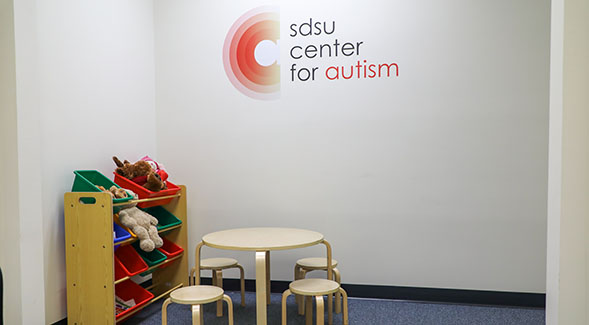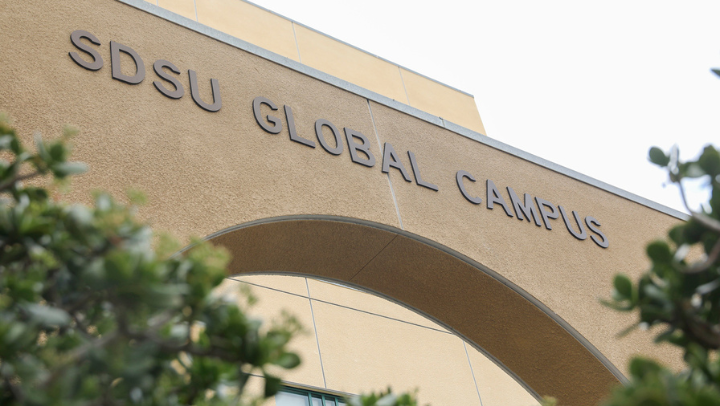Autism Center Answers Growing Need for Community Services
The center is marking a major expansion by holding a community forum at Storm Hall on Nov. 30.

“There’s an unmet need in the community for affordable and accessible clinical and diagnostic services.”
Aiming to become a centralized location for assessment, diagnosis and support for people with autism spectrum disorders in San Diego County, the San Diego State University Center for Autism and Developmental Disorders has opened an expanded space for clinical services and outreach.
“We want to be a focal point for researchers, students and trainees, faculty, families and community,” said psychologist Inna Fishman, founding director of the center. The additional space, she said, makes for a more comprehensive approach to training of future clinicians, scientists and therapists in autism and related disorders, and supports the growing move toward interdisciplinary research.
The center is hosting an inaugural event, “Building Bridges: Science & Community Forum,” from 5-8 p.m. Nov. 30 at Storm Hall West, Lecture Hall 12 and West Patio. The event is free and open to all and will include discussions on the center’s mission and information about research on autism at SDSU. (Registration information is here.)
The Center for Autism and Developmental Disorders is located in the Alvarado Research and Professional Center, close to the SDSU main campus and west of the San Diego Trolley’s Alvarado station. Its services for the San Diego community include diagnostic assessments and evaluations for people of all ages, toddlers through adults, with autism spectrum disorders (ASDs).
“We could be doing assessments and evaluations full-time, all day, every day,” Fishman said. “There’s an unmet need in the community for affordable and accessible clinical and diagnostic services.”
A community presence
Vinton Omaleki, outreach coordinator, said the center wants to extend its presence in the community, which includes science-focused “brain workshops” for children at libraries. “We’ve been expanding those relationships with other organizations, across the county and even across the state,” Omaleki said.
SDSU’s work in ASDs and developmental disorders spans several colleges and departments, with grant funding sources that include the U.S. Department of Education, the National Institutes of Health and Autism Speaks.
In addition to research by Fishman, Ralph-Axel Müller and other faculty in the Department of Psychology who are studying the biology and neuroscience behind autism, the College of Education offers an M.A. degree in Special Education with an emphasis in autism. The Speech-Language Clinic operated by the School of Speech, Language and Hearing Sciences offers services to children with ASDs.
Fishman said having a comprehensive location devoted to autism will bring together researchers aiming to translate scientific discoveries into benefits for children and families affected by autism. It also allows families interested in taking part in research to learn of ongoing SDSU studies.
For researchers and community members alike, she said, the center can serve as a place “to get information on what’s known about autism and what are the most recent scientific advances changing the lives of people on the spectrum.”
The center staff is especially interested in serving adults with autism and developmental disorders, an underserved population that does not have the same access to services provided to school-age children through schools.
To reach the Center for Autism, call 619-594-3574.



